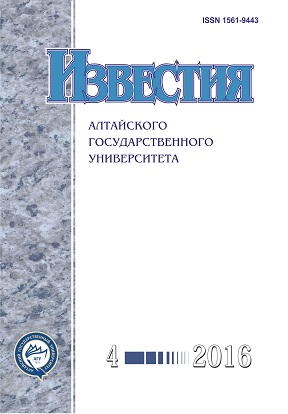The Development of Legislation on the Protection of Private Forests of the Russian Empire in the Second Half of the 19th Century
Abstract
This article examines the development of regulatory system in the sphere of the protection of privately owned forests. The problem of preservation of privately owned forests became particularly relevant after the decree of 1782 issued by Catherine II, entitling the owners with the right of unlimited use of forests within their land holdings. The government hoped that landlords would make every effort to responsibly develop forestry in their possession. Since the state forest service was undeveloped and it was not possible to transfer all the forests under the supervision of forest officials, there was no other way to protect private forests from unauthorized use. However, the application of this decree showed that ruthless deforestation for the purpose of profit became for private owners a predominant form of forest management. To prevent the final destruction of private forests in the second half of the nineteenth century several legal regulations were adopted, with the “On Saving Forests” Regulation of 1888 being the most important. DOI 10.14258/izvasu(2016)4-25Downloads
Metrics
References
Результаты бывшего казенного лесного хозяйства к 1914 году / под ред. В.В. Фааса. - СПб., 2010.
Быковский В.К. Использование лесов в Российской Федерации: правовое регулирование. - М., 2009 [Электронный ресурс]. - URL: http://www.booksite.ru/fulltext/ byuk/ovs/kiy/3.htm
Истомина Э.Г. Лесоохранительная политика России в XVIII - начале XX в. // Отечественная история. - 1995. - № 4.
Пуряева А.Ю., Пуряев А.С. Лесное право. - М., 2009.
Полное собрание законов Российской империи. Собрание 2-е (ПСЗРИ-2). - Т. 42. - Отд. 1. - № 44587.
ПСЗРИ-2. - Т. 51. - Отд. 1. - № 55486.
Собичевский Т. Лесное дело в царствование Александра III // Лесной журнал. - 1894. - Вып. 6.
Полное собрание законов Российской империи. Собрание 3-е (ПСЗРИ-3). - Т. 8. - № 5120.
Орлов М.М. Основы лесоохранения в России: доклад Всероссийскому съезду лесовладельцев и лесохозяев для обслуживания лесоохранительного закона. - СПб., 1911 [Электронный ресурс]. - URL: http://www. booksite.ru/rusles/7.html
Нехорошев Т.В. Краткий обзор деятельности казенного лесного управления за 1893-1902 гг. - СПб., 1903.
Строгий А.А. Истребление лесов Сибири и необходимость сибирского лесоохранительного закона. - СПб., 1911.
Государственный архив Алтайского края. - Ф. 4. - Оп. 1. - Д. 156.
Фалеев Н.И. Лесное право. - М., 1912.
Пуряева А.Ю. Государственное управление частными лесами в России в период с 1649 по 1917 г. // Экологическое право. - 2011. - № 4.
Izvestiya of Altai State University is a golden publisher, as we allow self-archiving, but most importantly we are fully transparent about your rights.
Authors may present and discuss their findings ahead of publication: at biological or scientific conferences, on preprint servers, in public databases, and in blogs, wikis, tweets, and other informal communication channels.
Izvestiya of Altai State University allows authors to deposit manuscripts (currently under review or those for intended submission to Izvestiya of Altai State University) in non-commercial, pre-print servers such as ArXiv.
Authors who publish with this journal agree to the following terms:
- Authors retain copyright and grant the journal right of first publication with the work simultaneously licensed under a Creative Commons Attribution License (CC BY 4.0) that allows others to share the work with an acknowledgement of the work's authorship and initial publication in this journal.
- Authors are able to enter into separate, additional contractual arrangements for the non-exclusive distribution of the journal's published version of the work (e.g., post it to an institutional repository or publish it in a book), with an acknowledgement of its initial publication in this journal.
- Authors are permitted and encouraged to post their work online (e.g., in institutional repositories or on their website) prior to and during the submission process, as it can lead to productive exchanges, as well as earlier and greater citation of published work (See The Effect of Open Access).








